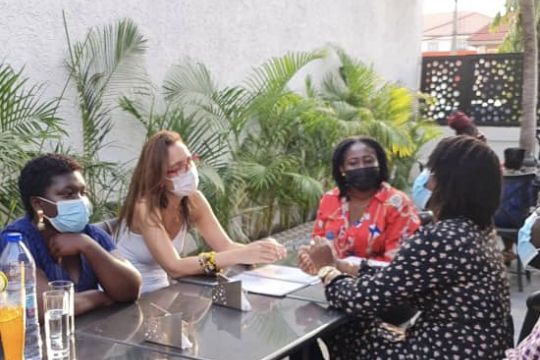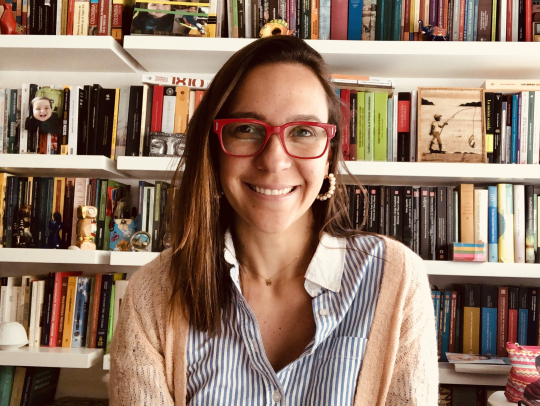María del Pilar got tired of hearing lame excuses, such as “we would like to feature women researchers, but we can’t find any”. So she created a database of women researchers working in the field of environmental economics. The list keeps growing. Interestingly, she didn’t find it hard at all to find them.
During the pandemic it became more obvious than ever according to Maria del Pilar: The speakers in the webinars and expert groups were almost all men.
Get patronized and interrupted
“This is nothing new of course, but it became so visible during the pandemic. And it’s so normalized that neither men nor women seem to react when there are only men participating in the discussions,” says María del Pilar.
She has also experienced that on the occasions when women are actually part of the discussions, they get patronized and interrupted much more often than men do.
“I have, for instance, participated in a panel where I was the only woman. But even though I was also the only doctor, the men were referred to as ‘doctors’ and I was ‘the girl’,” she says.
Got massive media coverage
She has compiled a similar database before. That one included women researchers in economics (not specifically environmental economics) in her country, Colombia. To make it known, she launched a campaign together with her students and presented this database to media, event organizers, and others. The campaign was very successful and got a lot of attention in the media. People have started to contact María del Pilar when they want to find relevant women researchers.
Advice to presidential and congress candidates
As a result of that campaign, she has also been approached by four politicians (all men) that are running for president and congress in the upcoming elections in Colombia. They have asked for her advice on gender issues and they have ongoing discussions on topics such as care economic policies (kindergartens), gender violence, juvenile pregnancies, and the low participation of women in politics.
Will help build a network
Hopefully, this new database which includes women in the Global South and is focused on environmental economics, will also have a great impact and shed light on the fact that there are indeed a lot of competent women researchers who can contribute to expert groups and panel discussions and also help achieve a gender balance.
This database is also aimed at contributing to building a women’s research network. For those who want to collaborate with other researchers, maybe on other continents, this will be a helpful tool.
The database is currently work-in-progress, but will eventually be available on EfD’s website. You can, however, contact María del Pilar if you want to find a woman researcher in the Global South with a specific competence within the field of environmental economics.
By: Petra Hansson
Facts
María del Pilar is a research fellow of EfD Colombia and the leader of the Women in Environmental Economics for Development (WinEED).
Other current plans for WinEED include a mentorship program and research exchanges.
Here is the database with women researchers in economics in Colombia.

